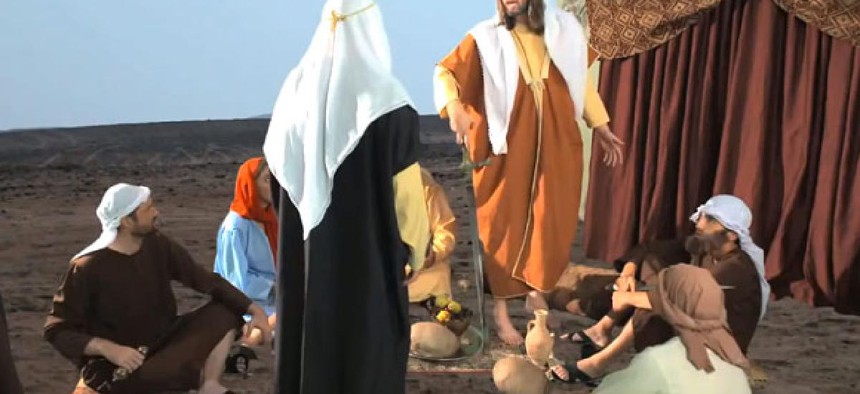
The 14-minute online trailer has offended many in the Middle East. YouTube screenshot
U.S. did not issue warning after anti-Islam video
Google blocks video on YouTube in Egypt, Libya.
U.S. intelligence agencies and the State Department did not issue warnings to diplomats after an anti-Islamic video, made in the United States, was broadcast on an Arab talk show, which may have been the flashpoint for the unrest in Egypt, Libya and elsewhere, Reuters reported.
Although one warning of a potential threat was circulated within the government, it was not serious enough to upgrade embassy and consulate security, an official told Reuters.
An Egyptian TV network, al-Nas, aired details of the video last Saturday, describing the video's creators as “migrant Coptics,” alluding to the region’s minority Christians.
After four Americans were killed in Libya, and protests continue throughout the Middle East, officials in the intelligence community acknowledge they are still gaining an understanding of how social media can inspire unrest. Analysts, however, said that the U.S. cannot react to every negative broadcast against the U.S. in the region.
“The number of potentially inflammatory things that are said or broadcast every week (is so large) ... that warning about all of them would be useless,” Paul Pillar, a former top U.S. intelligence analyst, told Reuters.
Following the deadly attack in Libya and violent protests outside the U.S. embassy in Cairo, Google has also banned access to an anti-Islam video, The New York Times reports.
Google, which owns YouTube, is attempting to prevent the video from inciting further violence. The rare move by the company was “made because of the exceptional circumstances,” according to the Times, though it raises questions about Internet control and censorship.






